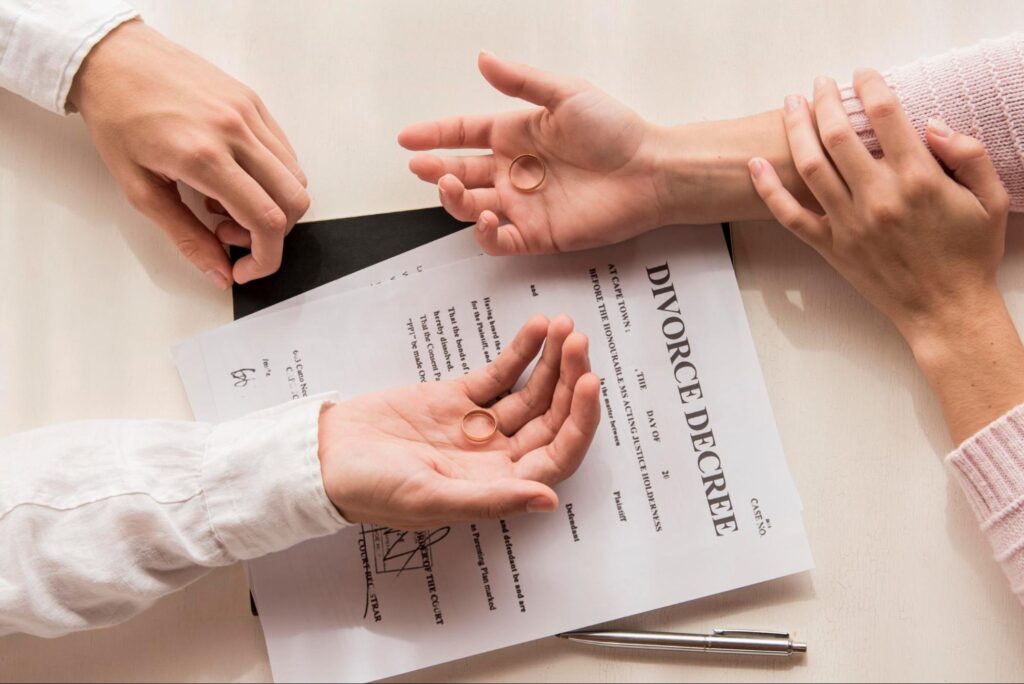
Connect with Family Law Attorneys
Scottsdale Divorce Lawyers
Top 11 Questions to Ask a Divorce Mediator Before Hiring One
A Divorce Mediator is a neutral third-party who helps spouses work through the contested issues in their divorce to reach an agreement and avoid the traditional course of litigation.
Mediation is often the preferred method of finalizing a divorce because how long a divorce mediation takes is typically faster than resolving the issues through the court system, the parties retain control over the outcomes, and it is usually less expensive than taking a case through a final trial.
When exploring divorce mediation, trying to figure out who is the best fit for your case can be overwhelming, especially when this is the first time you have done something like this and do not know what qualities or strategies make a mediator effective. Below, we have identified 11 questions to ask the divorce mediator to help you determine if they suit your case.
BTL Family Law is here to help
1. What Kind of Training and Education Do They Have in Mediation?
This question is important because, in many instances, there are no formal education requirements to become a Mediator. You want to ensure the mediator has the education, either formal or through experience, in the issues you will mediate. This is one of the differences in a mediator vs. an attorney
Divorce Mediation is, of course, within the context of a divorce case. The mediator must know how the applicable law impacts the mediation process. As an example, how confidentiality applies to mediation.
Additionally, it is often helpful if the mediator has a strong background in divorce law. Without a strong experience in the applicable law, the mediator may not be as effective in helping the parties reach a resolution.
If a potential mediator you are considering does not have experience in the area of law specific to your case, there is likely a better option. A mediator focusing on international business transactions may not be as effective as someone mediating divorce cases.
A mediator’s education can be obtained through a training course, but many mediators build their education through years of experience as practicing attorneys.
2. Are They Also a Divorce Attorney?
A Mediator does not typically have to be a Divorce Attorney, but they often are. In our office, when we are choosing mediators for our case, they are almost always currently practicing divorce attorneys.
This knowledge and experience is essential because while the neutral third-party mediator does not give either party legal advice, that is for the parties’ attorney to do, the background helps promote an effective divorce settlement. Mediators without this background may not best fit a divorce case.
When the mediator has the experience of a practicing divorce lawyer, they know the current state of the law and the issues that typically impede settlement. Most importantly, they have proposals and ways to resolve those impediments to help the parties reach an agreement.
3. Will I Need My Own Attorney?
The parties aren’t typically required to have their own attorneys during mediation, although the policies of the specific mediator would largely determine that. If the mediator requires each party to have counsel present, you need to know that before the morning of mediation.
Keep in mind that the mediator is not there to provide legal advice. They do not represent either party. If you go to mediation without attorney representation, you must be prepared to reach agreements without that legal advice. You will not be required to reach an agreement without representation, and you should always consult an attorney if you think you need to. But, part of the point of mediation is to set aside specific time for the parties to focus on the case and reach a resolution. If you know you want an attorney to review any potential agreement before you sign it, consider having the attorney attend mediation with you so it can be an effective session.
4. What is Their Approach to Mediation?
Mediators are individual professions, and there are many ways to conduct mediation and many strategies experienced mediators can use to facilitate a settlement. Some offices have multiple aspects to their mediation procedures. Our office has broken down what to expect during the divorce mediation process into five stages.
One important approach you should know before going into mediation is whether you will be in the same room as the other party during mediation or whether you will each be in separate rooms. This is important to know not only for preparation but also to ensure their approach is the best for your case. If the mediator plans to have the parties be in the same room for the entire mediation and that approach does not work for your relationship, this is a red flag you need to know before going into mediation.
Our default approach in our office is to put each party in a separate conference room during the mediation. The mediator then goes back and forth between the rooms to help facilitate settlement. This approach creates the most comfortable environment and promotes open discussion and settlement. But, it is not always the best approach. Sometimes it is appropriate for the parties to be in the same room for mediation.
5. How Does the Mediator Handle Conflicts During the Mediation Process?

This question is actually more important for the mediator, so the mediator knows whether they best fit your case. Conflict can arise during the mediation process. After all, this is a divorce mediation, and most people are not getting a divorce because they are on the same page about everything.
But, the level of conflict can change who you select for mediation. If your case is considered high conflict or there are safety concerns, it is important that both you and your mediator agree they are a good fit for your case.
6. How Does the Mediator Involve Each Party in the Decision-making Process?
Mediators are supposed to be a neutral third-party who does not give legal advice. Instead, they help the parties reach a resolution and find creative ways to overcome obstacles to settlement.
If the mediator does not equally include both parties in the decision-making process, it is likely a red flag that they are not the best fit.
7. How Many Mediation Sessions Are Typically Needed?
The answer to this question can vary depending on the mediator’s approach, whether counsel represents the parties, and whether the parties have completed the appropriate work in preparation for mediation.
In some cases, well-prepared parties can reach an agreement in one day or a few hours. In other cases, where the parties may need more preparation for mediation or many highly contested issues to resolve, mediation can span a couple of days.
Either way, you need to know how many sessions the mediator expects. You would be very disappointed if you thought the mediation would only take a day just to find out that the mediator planned their schedule for multiple days.
Related Resource:
8. What if My Spouse and I Can’t Reach an Agreement?
Sometimes parties cannot reach an agreement, but it is not always because one party was being unreasonable or intentionally difficult. Sometimes, parties disagree on the application of the law to their case and therefore cannot reach an agreement.
This does not mean that all the efforts put towards mediation are wasted. Parties can enter into partial agreements and reserve the remaining disputed claims to be resolved by a judge.
It may also be appropriate for the parties to schedule a follow-up mediation after they have had time to further research their claims.
9. How Much Will Mediation Cost?
Typically, mediators will either charge by blocks of time at a flat rate, then hourly for any additional time, or a flat fee, or just hourly for time used.
It is very important to clearly understand what your financial obligation will be for the mediation and what exactly that includes. For example, is the mediator’s preparation time included?
You also need to know how mediation is being paid. Is it being split equally, or is it another division between the parties? In almost all circumstances, mediation is paid up-front or at the conclusion of the mediation day.
All of these answers will likely be clearly identified in the agreement to mediate. Do not proceed with attending mediation without a clear understanding of what the fees will be and how they are being paid.
10. What Can I Expect After a Successful Mediation?

This is important because it sets the expectations and makes sure the parties and the mediator are on the same page. A mediator is trying to help you resolve your divorce. With that in mind, a party may expect that if they reach a complete agreement at mediation, when they walk out their divorce process is done.
That is not usually the case. Parties will usually enter into a signed agreement after a successful mediation, but there are typically additional documents to submit to the court to finalize the divorce.
Have this discussion to know what to expect from a successful mediation.
11. What Payment Options Are Available?
As I mentioned above, know the terms of payment before attending mediation. Many mediators either have you prepay for mediation or total payment is due at the conclusion of mediation, and payment plans are uncommon.
These terms will likely be detailed in the agreement to mediate, but if they are not, make sure you ask. No one wants a surprise bill at the end of a long day.
BTL Family Law is here to help
Prepare for a Successful Mediation
You want a successful mediation. As with many things, a successful mediation hinges on preparation and ensuring you have the right professional for your case. In our office, we encourage you to explore and ask questions to ensure we best fit your case.
Call BTL Family Law at 480-307-6800 to schedule a consultation with one of our mediation lawyers and discuss our process.